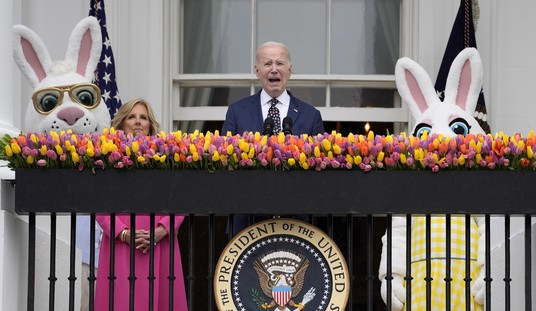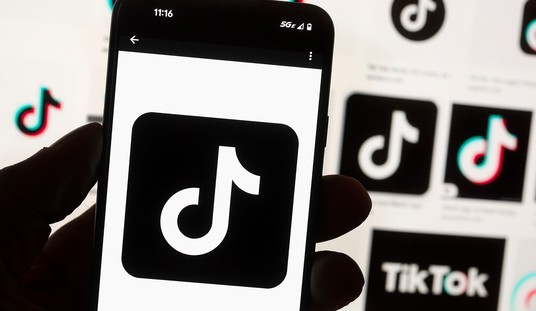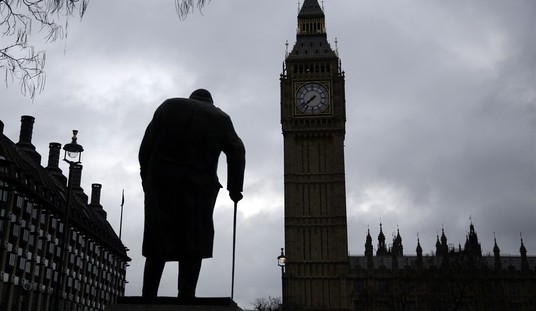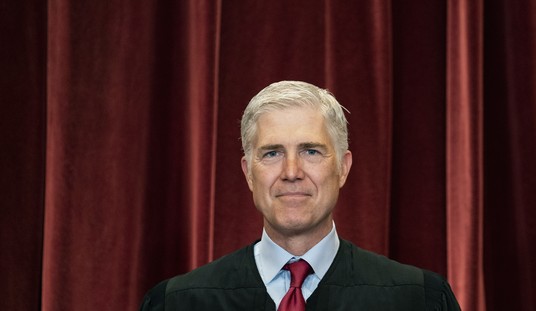Polls polls polls polls polls. In the weeks leading up to a presidential election, that’s all anyone talks about. Polls subsume all other news: Every soundbite, disaster, current event, policy, gaffe, decision and incident are merely vectors in pollspace, data which may or may not nudge the candidates’ numbers up or down a notch.
Therefore he who controls the polls can retroactively control everything that happens: Any event or utterance can be afterward spun as wonderful or ruinous if you can demonstrate that the subsequent poll showed a bounce or a dip. Polls are seen as irrefutable ex post facto evidence that a slanted news report was in fact accurate: “See? You complained when we quickly labeled the candidate’s joke as a ‘gaffe,’ but this new poll shows he dropped three points, so that proves it really was a gaffe.”
As a result, the 2012 presidential campaign is paralleled by a surrogate Poll War enjoined by each side’s supporters in the punditocracy. Whatever else happens in real life, the partisans are in an endless down-and-dirty mud-wrestling match over the veracity and reliability of polls.
The Purpose of Poll-Skewing
Each side has defined for itself an ultimate goal. Obama’s supporters in the media and online strive incessantly to demonstrate and publicize that Obama is ahead in the polls. Romney’s supporters strive to demonstrate that those polls are skewed, since the published totals are “weighted” (i.e. arbitrarily distorted) to match statistics about past voter behavior that are no longer true.
Now, if you had just landed on Earth from another galaxy, you likely would be very confused about this behavior on the part of the poll-wrestlers. Presuming there is such a thing as objective reality, there must be a certain true percentage of people who support each candidate — so what purpose is served by intentionally misrepresenting that reality if, at the end of the campaign, that misrepresentation will be trumped by an actual vote? Isn’t the purpose of polls to reveal a snapshot of how things really stand?
Oh you naive extraterrestrials, we reply. Originally, yes, polls were meant to document reality, but nowadays polls are designed to mold reality. If two candidates are in truth currently tied, but we announce that one of them is in the lead, then on election day he will actually win, because our false poll reporting affected how people vote. Get it?
Amateur Mass Psychology
No, actually, I don’t get it. This entire strategy, which dominates the 2012 election even more than it dominated earlier campaigns, is based on some amateurish assumptions about mass psychology that have never been proven, or even tested. I find it extremely odd that no one has ever questioned these assumptions — until now, at least — because so much depends on them. What if it turns out, after endless person-hours expended on the Poll Wars, that the assumptions justifying poll-skewing are completely wrong?
For poll-skewing to be effective, all five of the following hidden assumptions about human psychology must be true:
ASSUMPTION #1
• When a person sees that his team is in second place, he gives up and stops fighting.
Perhaps I’m different from everyone else on Earth. Maybe I’ve got grit that everyone else lacks. But when I see myself behind in an ongoing competition, I redouble my efforts in an attempt to win.
But I don’t really think I’m different at all. I think most people react exactly as I do. In fact, personnel managers often rely on this common behavioral trait to motivate employees by pitting them against each other and then implying to each one that if only he tried a little bit harder he would surpass all the other employees and win the promotion. The end result is that each employee, thinking his promotion is in danger, works more energetically to achieve hoped-for victory.
Here’s an example. Let’s just say that in some battleground state Obama and Romney are essentially tied in the raw polling data, but in an attempt to “depress the vote” among Romney supporters the media and partisan pollsters intentionally skew the results and announce that Obama is actually up by three points. What would be the group psychology consequence of this false announcement?
The Obama partisans assume that Romney supporters will see the false Romney-is-losing poll results, get discouraged, and say to themselves, “Gee, looks like Romney is going to lose. There’s no point in voting for him. I give up. I’m not going to vote on election day.” And then Obama really would win by three points.
Now to me, that would be a bizarre and unlikely reaction. I would assume the exact opposite — that the Romney supporters would become unnecessarily alarmed at such a poll result and as a consequence would fight harder for their candidate: “Gee, Romney is trailing at the polls: I’d better go volunteer at the campaign office and make sure all my fellow Republicans vote with me on election day to help Romney pass Obama at the finish line.” And the consequence would be that Romney won by three points.
So: We have two competing assumptions, one (held by most Democratic strategists) that skewed poll results will discourage opposition voters, and one (held by me) that skewed poll results will energize opposition voters.
Surely, there is some evidence, some study, supporting one assumption over the other — right? Well, as far as I can tell, no, there isn’t. For this entire campaign season I’ve searched in vain for some kind of verification that the unquestioned assumptions underlying the “depress the vote” strategy are even true. But no one’s ever done such a study [Note: see update below], and I doubt any strategists have ever spent two seconds questioning their assumptions about mass psychology.
And how would such a study be conducted? It’s not like a pollster can ask voters, “If your favorite candidate was actually ahead in popularity, but the only way you could know this fact was from the results of polls, and if then a pollster like me intentionally lied and told you that your candidate was actually losing, would the deception work on you and cause you to become discouraged and not vote at all?” I’d imagine that the pollster would get a punch in the nose rather than a well-reasoned answer.
But if there’s no data to support the assumptions behind the “depress the vote” strategy, then who’s to say whether the assumption is correct? Simply because more people have that assumption? And how do we prove that? Do we take a poll of people about their group psychology assumptions? “Do you assume that falsely distorted poll results will depress votes for a candidate or energize his supporters?” And what if those poll results are themselves skewed? Where does it end?
And so we come to an astonishing conclusion: That thousands of campaign strategists for decades have been operating on an assumption that has never been confirmed, and that for all anyone knows the exact opposite could be true — that poll results skewed against a candidate only end up energizing his supporters and increasing his final vote tally.
ASSUMPTION #2
• People’s desire to be part of the “in crowd” is much stronger than any political philosophy they may have.
The next assumption justifying skewed poll reporting is that people’s fear of being perceived as an “outsider” or member of a losing faction outweighs their political beliefs. Thus, people will flippantly switch votes to whichever candidate is likely to win merely so as to then feel like part of the “winning team.” If you can’t beat ’em, join ’em.
Is this assumption accurate? I can’t say for sure. There probably are some people who are so shallow, so obsessed with social maneuvering and so despicable that they will side with the perceived majority in any situation, even if it entails utter hypocrisy and moral vacuity. But do such people even bother to vote? It’s hard to visualize such a person, but I imagine they’re more concerned about what eye-shadow Kim Kardashian wears than they are about the fate of civilization.
Furthermore, it seems more and more, especially in the last four years, that the opposing political factions have hardened, the fissure between them has deepened, and rarely these days does anyone say the once-common refrain “There’s no difference between Republicans and Democrats.” Consequently, it has become much more difficult to casually switch camps, because now that involves flipping from one political extreme to another, rather than (as it used to be seen) choosing between two very similar options.
Flip-floppers and fair-weather vote traitors are a dying breed. Are they common enough to affect the result of a national election by voting for Obama simply because they were tricked into thinking he was guaranteed to win? Quite doubtful. I have no hard statistics on the rarity of flippant vote-switchers, but then again nor do the strategists laboring overtime to deceive them. Are those labors all a grand waste of time?
ASSUMPTION #3
• The liberal media can communicate directly to their conservative opponents with reverse dog whistles, while winking to Obama voters that they should ignore the lies.
The American left is obsessed with the concept of the “dog whistle,” an imaginary mode of communication in which conservative speakers, addressing a general audience, use secret code words to convey racist sentiments to fellow racist conservatives, which the rest of the audience presumably doesn’t notice (except for those too-clever Dog Whistle Detectives who spot racist code words in every Republican utterance).
Dog Whistle Code is actually an interesting logical problem: How can you embed a specialized message for a specific target audience in a communiqué that is broadcast to the general public? Long gone are the days when anyone could keep narrowcasting private; now, if you try to give a partisan message to a partisan audience, it will inevitably leak out to a shocked world. Therefore every utterance must be presumed to be broadcast generally, and any messages targeted at a specific subgroup must be secretly incorporated into a statement everyone can hear.
But the situation becomes doubly difficult when your target audience is not your close political comrades but rather your ideological opponents. But that’s exactly what the Obama-loving media is trying to do.
The goal of generating and promulgating skewed poll results is to (theoretically) depress and discourage Republican voters; but there is an unwanted side-effect that the media wishes to avoid: Inducing complacency on the part of Obama voters.
If you assume that a conservative activist will give up hope and stop fighting when he learns that his candidate is losing by a wide margin, then you necessarily will also assume that the reverse is true as well: That an opposing liberal activist will become lax, over-confident and complacent when he sees that his candidate is winning by a wide margin.
The corollary of “Dang it, my guy is losing by a wide margin, so there’s no point in voting” is “Yay! My guy is winning easily, so there’s no need to vote.”
So when the pro-Obama media and supporting punditocracy trumpet a new skewed poll, the hope is that conservatives will see it and become disheartened; while liberals are supposed to see it and understand (wink wink) that it’s a lie directed at someone else, which they should therefore ignore.
Unfortunately, that’s not what happens. If anything, Obama supporters seem to lap up and internalize the “Obama will win effortlessly” meme far more eagerly and unquestioningly than Romney supporters, who have become jaundiced and distrustful of anything the media does.
The end result is that for every Romney voter who stays home because he was tricked into thinking his vote will be futile in a sea of Obama votes, there may very well be an equal number of Obama voters who stay home because they were incidentally tricked into thinking their votes are unnecessary since Obama will win in a landslide.
And once again, I don’t have statistics for this, but neither do the Democratic strategists, because it’s basically impossible to poll future non-voters about why they will fail to vote. For all anyone knows, there will be five Obama voters who stay home out of over-confidence and complacency for every Romney voter who stays home out of depression.
ASSUMPTION #4
• Low-information undecided voters in swing states pay attention to the news, current events and polls.
As I noted in my previous essay, the few remaining undecided voters are the kind of people who would rather watch reruns of “Here Comes Honey Boo Boo” than live broadcasts of the Democratic and Republican party conventions. They have absolutely zero interest in politics.
This impression was confirmed by some man-on-street interviews with random New York voters which Howard Stern recently broadcast on his radio show. The interviewees were breathtakingly ignorant, had only the vaguest notion of who was even running for President, and agreed with any statement the interviewers made, including that Romney was Muslim, that Obama had picked Paul Ryan as his running mate, that John McCain was the 2012 Republican nominee, and so forth.
The Honey Boo Boo viewers and the New York morons, along with many of the other low-information voters around the country, don’t follow the ups and downs of daily polling; most of them probably don’t even know there is an election coming up. Heck, most of them probably can’t even read. They are, in essence, unreachable.
Low-Information Undecideds never notice the details: all they can perceive is the general atmosphere. Thus, the interview subjects in New York all said they were voting for Obama, not because of any reason they could name, but simply because they were in New York and in New York everybody votes for Obama. And I’m quite sure that if one went to certain counties in Texas one could find people planning to vote Republican for no other reason than it’s what “everybody does.”
So the pollsters reason: If we can create that atmosphere of Obama’s inevitable victory and universal popularity, then we can “convince” Low-Information Undecideds to vote for Obama simply because they will be mimicking what they think everyone else is doing.
But there’s a flaw in this plan. Swing states and battleground states are defined as such for a reason: They are evenly split between Republican and Democrat, liberal and conservative. There is no overarching political culture that dominates the atmosphere, as there is in (for example) San Francisco, or Provo, Utah.
Therefore the task confronting partisan pollsters in swing states is almost insurmountable: Create the false impression that Obama is overwhelmingly popular in an area where he is in fact not. It’s next to impossible to fabricate a Potemkin Village of widespread pro-Obama enthusiasm visible only to people notorious for not paying any attention. If Low-Information Undecideds merely ape what their neighbors do, in a swing state half those neighbors are going to be Republicans and half are going to be Democrats, and no amount of skewed polling can disguise that fact.
ASSUMPTION #5
• Polling companies need to be accurate in order to gain a reputation for reliability, so they have no motivation to lie.
This assumption, which the pollsters hope the public has, is partly true. A reputation for accuracy is one way for a polling company to attract clients.
But polling companies have a second motivation often at odds with and usually trumping the desire for accuracy: To give their clients (in this instance, political campaigns) what they want.
Want to see a poll that shows you’re winning (so you can use those false stats to sway the electorate?) You got it!
Want us to weight the results so that opposing voters become too despondent to bother voting? You got it!
Want evidence that you were in the lead so that when when voter fraud propels you to otherwise undeserved victory, it looks believable? You got it!
Campaigns will seek out any pollster who can provide them with the propaganda necessary to manipulate the election. Accuracy is only useful for secret internal polls; intentionally deceptive skewing is useful as tool to trick voters.
Some voters have figured this out, and now place more trust in the campaign’s secret internal polls than they do in publicly announced polls. But outsiders rarely get a glimpse of those secret internal polls unless they’re intentionally leaked. Diabolical campaign managers have begun to realize that they can also sway those hard-to-discourage skeptical voters by “leaking” supposedly reliable internal polling numbers which support their propagandistic goal; and since the polls are secret, there’s no expectation to release the underlying breakdowns, so the propagandists are free to concoct and release any “internal polling numbers” they so desire.
All in all, the polling industry has just as much if not more structural motivation for corruption as it has for honesty, so we can’t rely on the “marketplace” to weed out biased polls.
Conclusion
Five assumptions. Never questioned. All or most of them need to be true for poll-skewing to be effective. And yet under closer inspection none of them are proven to be true. On the other hand, there’s no solid evidence that they’re false, either; it’s all a guessing game of untested hypotheses. From my vantage point, which in the absence of any solid data is as valid as anyone else’s, many of the assumptions are not only false but they are inverted: The exact opposite assumption is more likely to be true.
Campaign strategists and their poll-skewing accomplices may be shooting themselves in the foot every single day by jumping to unproven conclusions about mass psychology. For all they know, every action they take backfires, and helps the opposition.
But they can’t be bothered by doubts. Merrily they skew and skew, convinced of their cunning.
UPDATE:
Thanks to a tip from “Rob Crawford” in the comments section, I have finally tracked down what I was looking for: a study which does in fact attempt to test and document what it calls “the bandwagon effect.” You can download the pdf of the full study here:
Effects of Poll Reports on Voter Preferences
The authors claim to have demonstrated experimentally that false poll reports can sway the electorate as much as 6%. But a close examination of how the study was conducted reveals that its conclusions are only applicable to a highly specific situation, and are irrelevant to elections such as the contest between Obama and Romney.
In the study, which was conducted during the Republican presidential primaries in February 1996, self-identified Republicans were divided into two groups and each isolated group asked their preference between candidates Bob Dole and Steve Forbes. Then each group was subsequently informed of a different false poll: the first group was told that a recent poll put Dole far in the lead against Forbes; while the second group was told the opposite, that a poll placed Forbes way out in front. Then the groups were asked a second time their preferences, and (to gloss over the complicated statistics) the Dole-poll group swayed 6% to Dole, while the Forbes-poll group swayed 6% to Forbes.
While this might seem pretty convincing at first glance, there are several factors which render it meaningless vis-a-vis the current election:
• There really was very little ideological or political difference between Dole and Forbes. Both were moderate-conservative Republicans with similar positions on almost every issue. The only differentiating factor was that Forbes was pushing a flat-tax gimmick, the consequence of which wouldn’t have been much different from what Dole was proposing more boringly. As a result, it was quite easy and not a philosophical leap to switch from one to the other (as it would be to switch from Romney to Obama). One might as well have conducted a study proving that 6% of people would change their ice cream order from Mint Chocolate Chip to Mint Fudge Ripple once the waitress told them that Mint Fudge Ripple was more popular. But imagine if the choice was between Vanilla Pudding and Szechuan Gizzard Flambé; I doubt many people would change their orders no matter what the waitress said.
• Almost all voters rally around their party’s eventual nominee, no matter who he turns out to be. Thus, it’s hardly surprising that a room full of Republicans would embrace whichever Republican appeared to be winning the race. But the situation is completely different in a general election, which is not a friendly rivalry like a intra-party primary but rather is a knock-down-drag-out showdown between competing worldviews. So the 1996 study is not really applicable to 2012 realities.
• The experiment was a hermetically sealed environment in which the participants had only one source of information which they were told to trust implicitly. So it was effortless to mislead them. But a real-world campaign is far messier, and try as they might the Obama-friendly media does not have a monopoly over the narrative, and voters have to choose between competing claims — the polls are true, the polls are lies, Obama’s leading, the race is a tie, Romney’s ahead, and so forth. In our real-world election, the poll-debunkers have created such a fuss that even the Obama-loving media spends an inordinate amount of time discussing and trying to dismiss the doubters, which shatters their own narrative monopoly. And to top it off, record numbers of Americans distrust the media altogether.
• A secondary part of the 1996 study was to test whether strong convictions could be altered by false polls, and found that in fact they can’t be. The experimenters conducted follow-up tests that essentially proved that strong opinions can’t be changed by false poll results, whereas weak opinions can be. But that once again confirms that the study has no relevance to 2012, in which voters on both sides express strong support for each candidate in record numbers, as compared to earlier elections. It also proves that the original subjects probably didn’t really care about the difference between Dole and Forbes in the first place, since they were partly swayed by false polls.
All in all, the “Effects of Poll Reports on Voter Preferences” study made some interesting observations, but nothing in the study demonstrated that “the bandwagon effect” can induce people to change parties or fundamental ideologies — only that false polls can induce people to vacillate between two similar options.
One final note: “Effects of Poll Reports on Voter Preferences” makes oblique references to earlier studies of the bandwagon effect, though many of them were conducted many decades ago. It would be interesting to dig them out and see if any of them have any relevance to our current election.
If poll-skewers are relying on evidence like this study to justify their deceptions, they may be in for a shock when election day rolls around.








Join the conversation as a VIP Member